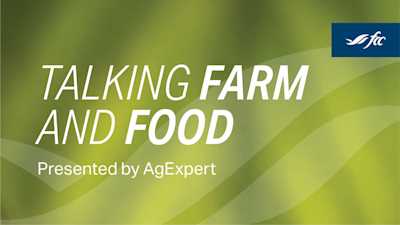Navigating a lifetime of financial learning

Good financial management is not an inherent skill—it must be taught and learned through experience. And, based on our age and circumstances, the focus of teaching and learning changes.
"Like brushing your teeth, developing good financial habits comes from timing and repetition."
Learning the basics of financial management can start at a young age. But Stephanie Holmes-Winton, founder and chief executive officer of CacheFlo, says lessons need to match what an individual will encounter in their daily lives.
“Like brushing your teeth, developing good financial habits comes from timing and repetition,” she says.
It also takes time to teach and learn discipline, so make it easier by matching the lesson with the right time in our lives.
Here are examples of financial lessons for various stages in life:
Young children
Teaching a young child about credit is a fruitless exercise since they don’t need credit. They will likely forget the concept of debt and interest well before acquiring credit.
Yet teaching young children about value by encouraging them to shop for a healthy snack at the grocery store with a fixed amount of money, will have a more significant impact.
First, they learn what they can afford. As they grow older, parents can help the child figure out costs per serving, comparison shop with other favourite items — apples might be more economical than raspberries — price variations between brands and whether the cost is worth the money spent. If there is any money left over from the purchase, it can be used next time or saved.
For FCC business advisor Terry Jones, financial literacy begins by connecting money to work. Whether through a small allowance or chores, doing so encourages young people to develop respect for where the money comes from.
Teens and young adults
Older children, teenagers and young adults should be taught more complex concepts—but not in excessive detail.
Understanding the basics of debt is important, such as how much of your income will pay for a house or vehicle. It’s also the time to learn about credit and borrowing.
Jones points out that the lessons about credit are important foundational financial learnings.
"It’s far too easy in this world to acquire credit. Paying it on time every month — an amount equal to or greater than the minimum due — is a must,” Jones says.
This is also the age to learn that adults should save a significant amount of money for the most expensive period of life: retirement and old age.
After post-secondary, it’s time to learn mortgage literacy, then turn the focus to saving for retirement.
30s and 40s
Age and experience do not guarantee better financial management skills. Through adulthood, Holmes-Winton encourages farmers to know how much debt they owe for every dollar earned and how their income and expenses will change as they age.
In our 30s and 40s, the focus is usually on how much income comes from where because many of us tend not to think about retirement at that age. And when we do, the default is often RRSPs. But RRSP withdrawals are taxable. We need to start thinking about the most tax-efficient income we can create because when you’re 60, you need to make your assets last.
Jones recommends the lifelong practice of using the 80/20 rule: all expenses and debt payments should not exceed 80 percent of our revenue stream, and the remaining 20 percent is saved for retirement.
When it comes to paying debt, Jones encourages farmers to consider these two strategies:
The snowball method: pay down the smallest debts first (regardless of which debt has a higher interest rate), then apply the payment from the now-paid smaller debt to the next largest. This method allows for greater cash flow flexibility, and debt will still be paid relatively quickly.
Avalanche approach: the largest, highest-interest debt is paid first. While it takes care of the high interest, this strategy can take a long time.
50s, 60s and beyond
As you approach retirement, Holmes-Winton encourages farmers to consider how they want to live. Are you going to sit at home and read some good books? Or will you hit the road and travel the country—or beyond? Write down all your current expenses and, based on your dream retirement life, identify which expenses will increase and which will decrease.
Article by: Matt McIntosh

Financial forecasting by analyzing farm finances and predicting statements throughout the year may lead to increased profitability.
